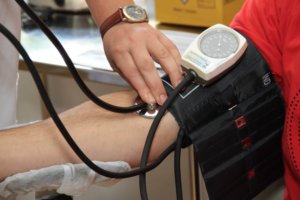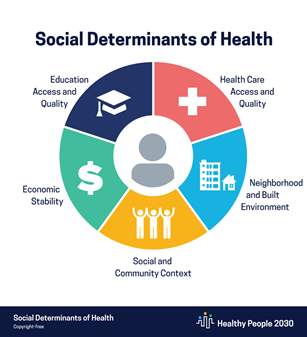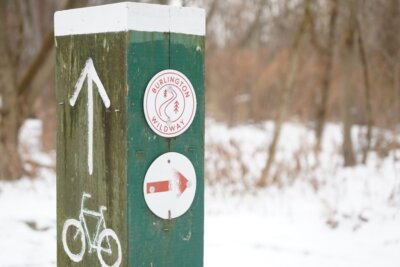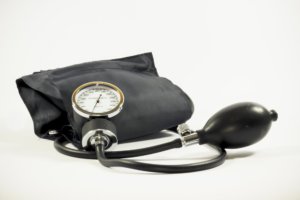Together, continuing to move forward
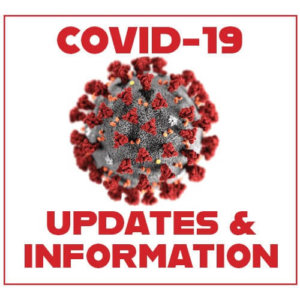 By Trina Bianchi
By Trina Bianchi
As I look at the calendar and see that we have turned to another month, I realize that we are now into the fourth month of the COVID-19 journey. Vermonters have come through this crisis quite well to date in terms of stemming the tide, but there are other areas in our lives that have sustained damage. Financial issues, food shortages, kids not being with their peers, struggling with online school, social distancing, no team sports, no religious services, no in-person organizational or group meetings.
The relationships that we depend on for our own mental and emotional health are largely absent, and now, adding to all of that, the current nationwide unrest.
Vermont has not seen the spike of COVID-19 that has been seen in many other parts of our country, but there is a cost in terms of financial, emotional and mental health. Any one of these issues brings some level of anxiety into our lives. Last week at our meeting of the COVID-19 Resources Group, we talked extensively about the emotional and mental toll this crisis has taken on our community and discussed possible options for assistance.
At our next meeting on June 15, we will be joined by at least one mental health professional who will talk with us about ways to care for folks who may be challenged emotionally or mentally. If you know of someone who you think may be struggling, now is the time to speak up. We all will experience a time in our lives when we need the help of others. We are all in this together. Reach out to friends and neighbors and make sure folks are okay.
Mental health resources
A list of books about mental health and self-care are available from the Charlotte Library. The library also hosts a health and wellness resource page.
If you or someone you love or know is in crisis or needs support, contact Chittenden County First Call at (802) 488-7777. Their trained staff, available 24/7/365, provide phone support, crisis intervention and assessment, referrals to appropriate services, and connection to follow-up care and collaborate with emergency responders during a crisis.
You can access further information at the Howard Center website.
The National Suicide Prevention Lifeline is (800) 273-8255.
Food and hunger resources
School lunch programs end June 28, but the Charlotte Food Shelf, in conjunction with the Charlotte Congregational Church, Our Lady of Mount Carmel Parish, and the Charlotte Library are beginning their summer lunch program at the end of June. Bag lunches will be available at CCC, the Food Shelf and Spear’s Corner Store. Information will be posted soon with starting dates and additional information.
Emergency financial aid resources
People can request aid by contacting any of the following: Charlotte Congregational Church, Our Lady of Mt. Carmel at (802) 425-2253 or via email, the Charlotte Food Shelf at (802) 425-3252.
Senior resources
Age Well’s helpline is available Monday through Friday, 8:30 a.m. to 4:30 p.m. at (800) 642-5119. Services include Meals on Wheels, Friendly Visiting Volunteers who practice strict COVID-19 safety protocols, community health workers and options counselors, and state health insurance program counselors.
Emergency management resources and safe protests
Visit the Vermont Department of Health’s (DOH) updated COVID-19 website for details on travel restrictions, quarantine information and group gathering guidelines.
Health officials support those who wish to protest and remind Vermonters who engage in public protests and other civic activities to minimize the risk of spreading the virus by taking the same COVID-19 safety precautions as with any other gathering.
Traveler information
Traveling to Vermont or coming back from a trip out of state? The Health Department’s new travel web page is dedicated to providing Vermonters with travel-related information and guidance, including for quarantining and testing. Anyone coming to Vermont is strongly encouraged to sign up through the DOH website for daily symptom check reminders through Sara Alert. This is not a contact tracing system and does not monitor a person’s movements or track their location. College students returning to Burlington should also use this as a resource.
Testing information
People who do not have symptoms of COVID-19 can still make an appointment to be tested at pop-up sites located throughout the state. Find locations and make an appointment Vermont’s Human Resources website. You can also call 2-1-1 or (802) 828-2828. All clinics operate from 9 a.m. to 3 p.m. Healthcare workers, first responders, childcare providers, people returning to Vermont such as college students, people who winter out of state, and second-home owners should get tested.
Keep a list of your close contacts. Health officials suggest that Vermonters keep a list of people with whom they have been in close contact. If you get sick, this will make it easier to get in touch with those people so they can take precautions.
School is ending, graduations are being held virtually, and we need to remember that this health crisis is far from over. Masks and social distancing are a part of our lives for the foreseeable future. Hopefully sooner rather than later, there will be a vaccine or a cure for COVID-19, but until then life will march on with safety protocols in place.
People are being challenged in a myriad of ways, and the abject failures in our culture and society are beyond apparent; we are fortunate in Vermont that we have not seen the violence that has erupted elsewhere the failures of our culture and society are ever more apparent today. As our world opens back up, hopefully many of us will recognize the benefits from the slowdown and make some real changes in our lives.
But let us recognize that in our little state, we are not immune to hate, intolerance and racism, and unlike COVID-19, no one can create a vaccine to counteract it. It’s time to speak! When we don’t speak up, we are part of the problem. We need to act, speak, and live like we mean it.
Stay well, stay safe.
Related Stories
Popular Stories
If you enjoy The Charlotte News, please consider making a donation. Your gift will help us produce more stories like this. The majority of our budget comes from charitable contributions. Your gift helps sustain The Charlotte News, keeping it a free service for everyone in town. Thank you.
Andrew Zehner, Board Chair



